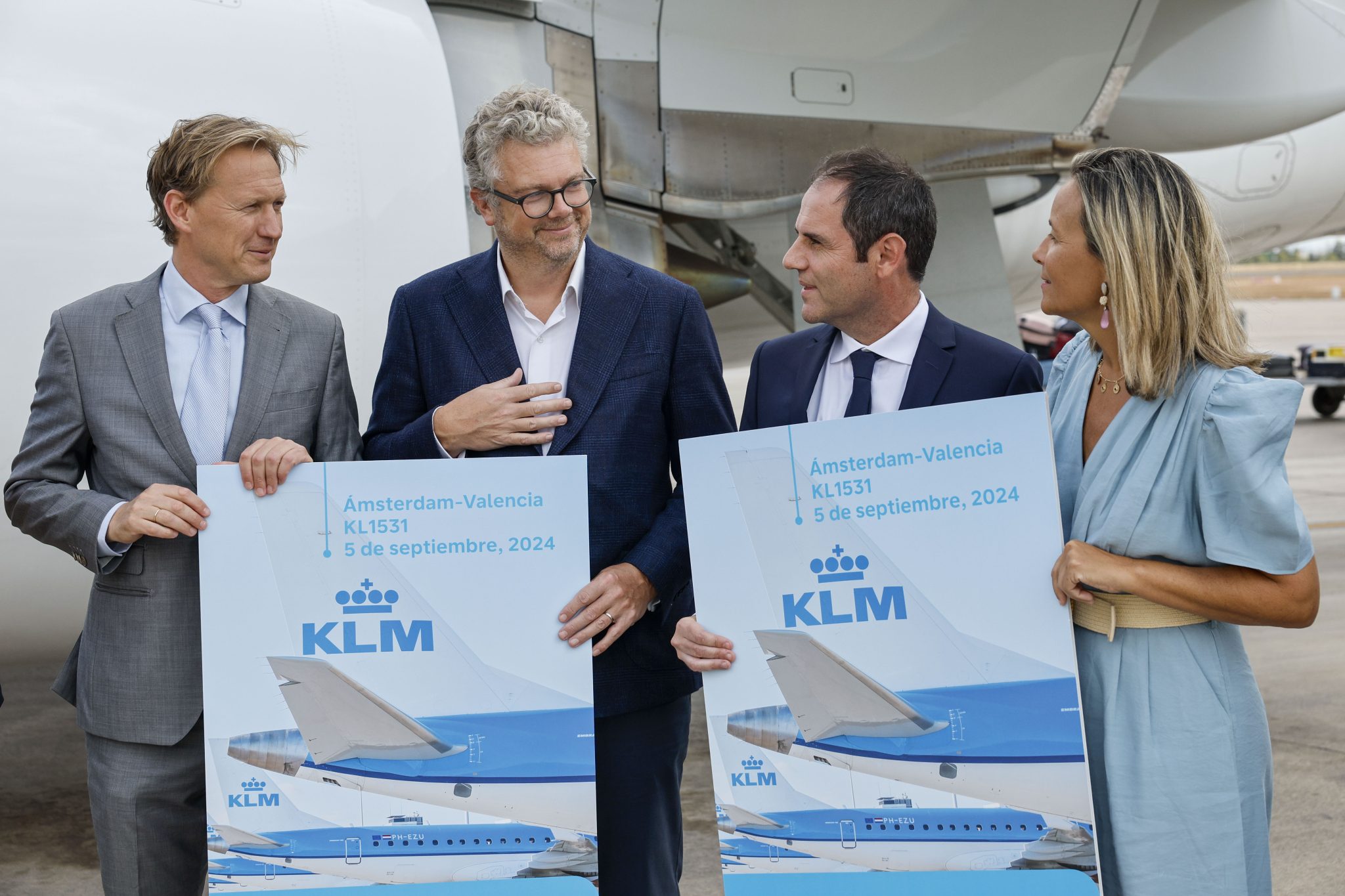KLM recognizes its impact on the environment and climate and understands that there are limits to what our planet can handle, necessitating action if we want to continue operating within these boundaries. By testing various innovations during flight operations and onboard, KLM examines their outcomes with the goal of scaling them up and implementing them as standard practices.
The KLM Cityhopper flight for The Aviation Challenge has landed in Valencia, the city designated as the European Green Capital for 2024 by the European Commission.
Before and during the flight, KLM tests various initiatives. For instance, the implementation of a new climb procedure, OptiClimb, can save 1% fuel on KLM Cityhopper flights. This procedure advises pilots on the most efficient climb speeds based on weight, weather conditions, aircraft type, and route. This procedure is implemented on all KLM Cityhopper flights next week. Additionally, efforts are made to conduct ground processes at the airport—both at Schiphol and Valencia—using as much electric equipment as possible.
Onboard, several changes are made, both noticeable and unnoticeable to passengers. Calculations ensure the aircraft is loaded with the minimum possible weight, and food waste is collected separately. Wine is carried in ‘Wine Tubes’ instead of small bottles, reducing both weight and waste. The trolleys are also updated to separately collect and process all waste. Porcelain is replaced onboard, and the Business Class cup is made from recycled agricultural waste. KLM’s inflight magazine, Holland Herald, is available digitally via onboard WiFi. Lastly, the crew received uniforms made from a new, more sustainable fabric and wears the previously introduced KLM sneakers by Filling Pieces.
As an airline, KLM aims to involve its passengers in the transition as well. Passengers who purchase alternative fuel (SAF) are given priority boarding, right after SkyPriority passengers. Tap water is made more accessible at Schiphol with water points, allowing passengers to fill reusable bottles provided by Dopper, reducing the need for plastic water bottles. Passengers are also encouraged to pack light before the flight.
The idea for The Aviation Challenge originated from a group of enthusiastic KLM colleagues. They were inspired by the historic London-Melbourne race in 1934, which aimed to connect the world and bring people together. Today’s aviation challenges are not about bridging distances but about sustainability. Hence, SkyTeam’s concrete challenge in the form of The Aviation Challenge is to conduct a regular commercial flight with as little impact on the planet as possible.



